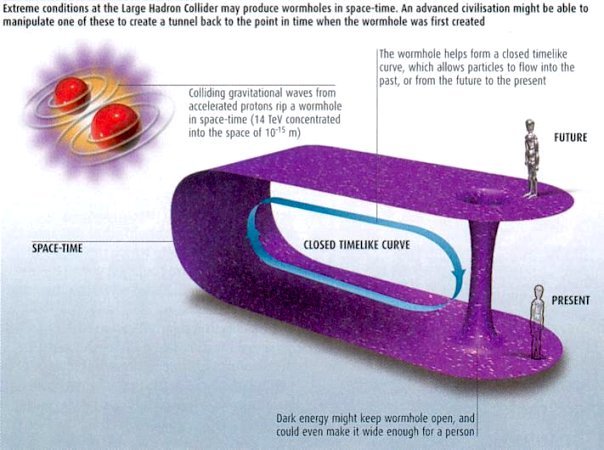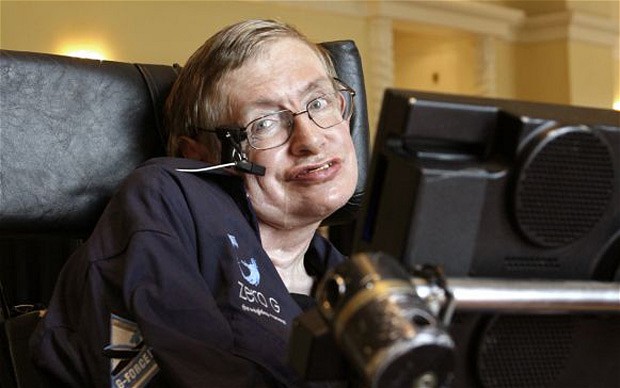A man so controversial, people either love him, or hate him, or both in the same time, Stephen Hawking is the Einstein of our modern times, the scientist whose ideas revolutionized the science and the world as we know them, the man given only a few years to live after he was diagnosed with a terrible disease and who managed to still be among us amazing our minds every time he speaks. His views on time and space, his anti-creationist ideas and his passion for hard science and solid proof make the world an interesting place to live in, even if not everybody agrees with his theories. Hawking is a fervent adept of Einstein’s ideas about time travel, thus raising a lot of debate in the scientific communities. He is a man that truly hopes time travel will be possible, if mankind reaches its technological peak. On the other hand, he is not the mad cold and cynical scientist that sometimes seems to be, as he writes children stories and has a long term relationship with teaching the children the basic principals regarding the Universe, through the voice of his fictional character, George, a little boy who wonders about everything that surrounds him.
So what are the best and most known theories, ideas and principles that Stephen Hawking became famous for?
1. God is not necessary
Because there are laws, such as gravity, the Universe can and will create itself from nothing. The pontaneous Creation is the reason for which the Universe exists, states the scientist in his book “The Grand Design”. In the last years, Hawking denied any divine intervention in the making of the Universe and life itself, considering that ” If we had a unified theory, this would be the supreme triumph of the human mind – then and only then we will know God’s mind”.
2. Religion versus Science
As a deity’s presence is considered futile in the life of man, according to Hawking’s theories, he took a step further also stating that “There is a fundamental difference between religion, which is based on authority and science, which is based on observation and argumentation. Science will win, because it works” (Diane Sawyer/ABC News, June 2010).
3. Fox Mulder was right
Hawking is a true believer in the existence of extraterrestrials, though research suggest that we are somewhat alone in this vast network of mysteries we commonly call the Cosmos. Hawking believes that an alien encounter will be terrible for the mankind as ” The extraterrestrials must be more developed than we are. And the history of encounters between very advanced races and primitive ones is not a very happy one, even if they were races among the same species. I think we should hide.” Hawking is never shy in confessing his belief in the existence of aliens, while he sees man as a very primitive being in the universal evolutionary chain.
4. Hide, but where?
Due to the general crisis Earth and humanity faces, Hawking is quite sure we should leave the planet and colonize other planets. He sees this as an extreme safety-measure for the salvation of mankind, prone to bring the end upon itself. Political, environmental and climacteric tensions, along with a falling economy are the principles which the scientist founds his argumentation on.
5. The obsession with time
If Einstein had chosen a follower to whom he could leave his ideas knowing they will be followed and put into practice, that would have been Stephen Hawking. Obsessed with time and time travel, Hawking contradicts famous physicists when it comes to time travel, as he is convinced that man could move up in time, but only in the future. According to his theory, worm holes, postulated by Einstein for the first time, are everywhere around us, at every step. The only think that keeps us from using them is that they are too small to be identified.
6. The Universe is infinite
Well… we kinda figured that out by ourselves, in a non-scholar manner, of course, but in 1983, together with a colleague, Hawking proved that the Universe is a definite entity which is actually infinite. As obscure as this statement may seem to sound at first, his discovery took quantum physics and relativity theories to another level, winning Hawking the reputation he has now.
7. Women are…
As much of the scientist that he is, Hawking couldn’t discover everything and prove without a doubt any law and theory in this existent Universe. Therefore, he has a more… personal inquiry he still has to solve. Women. In his own words, “Women represent a total mystery” (New Scientist, January 2012).
8. On disabilities and imperfection
Far to be physically perfect, Hawking discussed the theme of disability and imperfection many times. Regarding his own relationship with his handicap he stated that ” It would be a waste of time to be angry for my disability. Man should move forward, and I did pretty well. People won’t have time for you if you are always angry and complaining”. Indeed, Hawking passed through terrible moments after he was diagnosed and hospitalized in his twenties. His neurological illness is progressive and nobody hoped to anything good. But he saw a young men dying of leukemia in that hospital and decided to fight for his life. As imperfections go, the brilliant scientist recommends us that ” Next time somebody reproaches you of making a mistake, tell him it may have been a good thing. Without imperfections, you and me would never have existed” (Into the Universe with Stephen Hawking, 2010).
9. What man creates
Hawking loves his children. Asked once about the advice he would give to his own, he held a short but emotional speech about pride and honor, hard work and love, maybe the main values he believes in and educated his children into. Having a dark sense of humor though, Hawking also commented on man’s creations regarding the informational viruses, stating that “This may also be saying something about human nature: the only life form that we created is purely destructive.”
10. About himself
Hawking was a poorly prepared pupil in school, he could barely write, he hated biology with a passion and raised a lot of concern for his family and teachers because everybody felt that he was a genius, he just couldn’t express himself at that age. His nickname was Einstein and it was later when his inborn intelligence broke loose, managing to brilliantly master physics in college. However, he is still somewhat the quiet boy in the back as after becoming one of the most appraised scientists in the world, he still doesn’t brag about it. Asked about his IQ, he said that ” I have no idea. People who brag about their intelligence coefficient are losers”. (The New York Times, December 2004)










Leave a Reply